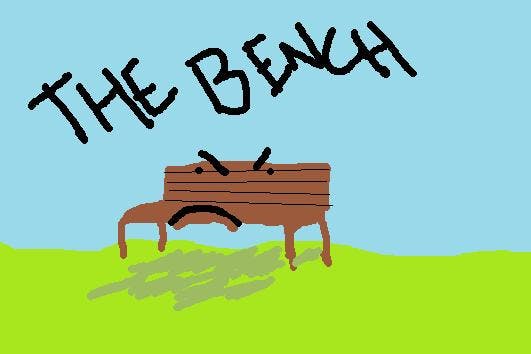On Player Accountability and the Bench
By Arik
10 years ago
The inevitable struggles of the Calgary Flames will bring on endless articles about coaching, with plenty romanticizing certain styles. Given how bad Calgary will almost certainly be this year, there will be endless words spilled on accountability, and plenty of them coming from the mouth of Bob Hartley, who has a reputation of being a bit hardnosed on the "accountability" thing.
– He’s also typically regarded as a disciplinarian. As one example, former Devils’ coach John MacLean earned some scrutiny after he benched Ilya Kovalchuk for tardiness, but Hartley had done the same thing in Atlanta – locking Kovalchuk out of the locker room after he was late for the Thrashers’ morning skate.
Because there is both implicit and explicit hierarchies that exist on benches and in lockerrooms, "accountability" and discipline tactics certainly do exist and play a role in the management of the roster, often with far more nuance and layers than fans can perceive from the outside.
"Accountability", though (the far more rigid, popular, mythic concept) has developed from the moralization of sports – the sense that athletes are superheroes and therefore should behave as such both on and off of the ice. The media and fans have come this collective idea that athletes should be infallible, and god help them if they aren’t, because the haranguing will never end. This is where "accountability" comes into play. How do you make sure players remain precious little angels? Why, benching them of course.
At least, that’s the common strain of thought. Strangely, Tony Gallagher of The Province has emerged as something of a voice of reason on this concept after new Vancouver hiring John Tortorella preached about accountability.
What are you going to do if these guys repeat mistake after mistake, bench Daniel, Henrik and RK17? To do so weakens your team to a ridiculous level. And how does that affect them? They still get paid, the Sedins, for instance, are unrestricted free agents at the end of the season, and could walk for nothing if they don’t like the treatment.Is holding them accountable shouting at them in the locker-room? That’s about the only thing you could do that might make their lives slightly less comfortable. How did such treatment affect Brad Richards last year in New York when he sat out? Did the Rangers suddenly spring to life and win the series, with Richards back on the ice, chastened and “held accountable,” scoring the winning goal? Not that we recall.
Gallagher is 100% correct here, but there’s even more to it than this. The first utterly insane assumption some writers, bloggers, fans, and even coaches make is assuming that for some reason players aren’t trying very hard. There’s this idea that when players aren’t playing well, it’s because they’re just not trying hard enough, darn it all. That they somehow spent a lifetime of working to make it to the NHL level, only to just stop giving a damn when they actually arrived. For the most part, when a player is playing poorly – he’s just playing poorly.
Maybe he didn’t prepare right or maybe the new baby is having a toll on his sleep. Maybe he’s got a pulled leg muscle and is just having trouble keeping up with the skating. A lot of the time, it’s just a bad night. Benching the guy will not fix any one of these. Benching a player won’t focus everything clearly. It won’t heal a banged up body or restore lost sleep. All it will do is keep the player off the ice.
So let’s imagine for a moment that a player is playing "lazy". What, then, is the point of punitive measures? If it’s bad enough they’re an actual negative on the ice, take them off by all means. But don’t do it to punish them— it won’t change a damn thing. Chances are the player is unhappy about something; punishing that player will only make them unhappier. This is hardly a solution.
This isn’t to say that coaches should be all sunshine and rainbows, but there’s better ways to run a strict team than reactionary punishment. Limiting fun times on road trips, instuting harder practices, creating visible and realistic expectations for players are all certainly more effective than stapling stars to the bench.
In short, benching as a punitive measure doesn’t strike me effective. It’s something that should be reserved for player’s whose play is actually detrimental to the team, rather than something used for a perceived lack of effort or skill.
And let’s not pretend that yelling at fully grown men who are more highly skilled than 90% of coaches ever were at hockey (and make more money!) is even remotely effective.
So where does this leave Calgary with a young team? There will certainly be days where the post-game stories are about Hartley tearing into the Flames in the locker room after games, which is all nice and really won’t have a large impact either way. The issue will come when Hartley decides to bench Mikael Backlund or Sven Baertschi due to a perceived lack of effort.
It’s a poor practice to use benching (or even the aforementioned "locking out of the locker room for tardiness") with an established team of established players; it’ll be even worse to try this on young players who need every bit of game time to improve, like the 2013-14 Calgary Flames.
Recent articles from Arik





